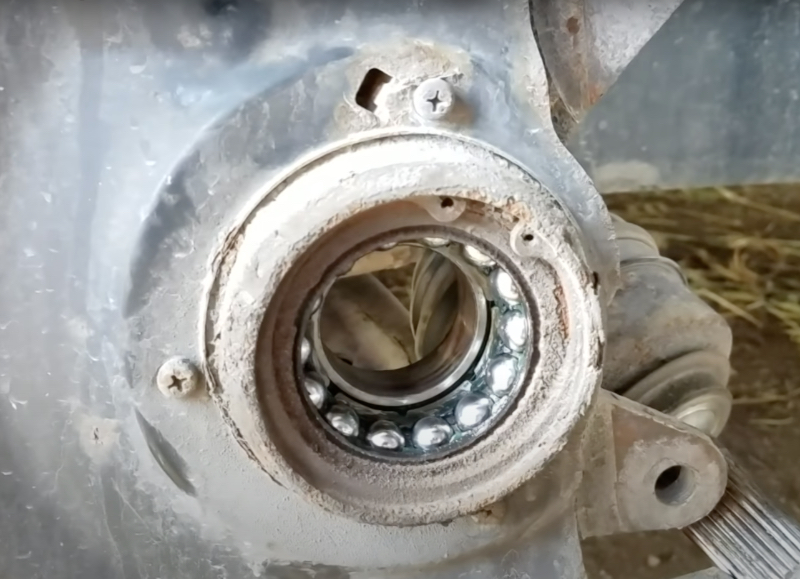Wheel Bearing Wear and Failure.
What are wheel bearings
Wheel bearings are an essential component of a vehicle’s suspension system. They are located in the hub of each wheel and allow the wheel to rotate smoothly with minimum friction.
A wheel bearing is made up of a series of steel balls or rollers, held together by a metal ring called a race. These balls or rollers rotate between two races, allowing the wheel to spin freely. The bearings are packed with grease to help reduce friction and heat, and to protect the bearings from dirt and water.
Wheel bearings are designed to withstand a lot of stress and strain, but they can wear out over time due to the constant rotation and pressure they endure. When a wheel bearing starts to fail, it can cause a range of problems, such as those outlined below.
Several signs of wheel bearing failure

- Grinding or humming noise: A common sign of wheel bearing wear and failure failure is a grinding or humming noise that gets louder as you accelerate. This noise usually comes from the area around the wheel, and it may be more noticeable when turning.
- Vibration in steering wheel: Another sign of a bad wheel bearing is vibration in the steering wheel. This can happen when the bearing becomes worn, and the wheel is no longer able to rotate smoothly.
- Uneven tire wear: When a wheel bearing is failing, it can cause the tire to wear unevenly. This is because the wheel is no longer rotating smoothly and may cause the tire to wear down more quickly on one side than the other.
- Wheel wobbling: If you notice that your wheel is wobbling or shaking while driving, this can be a sign of a bad wheel bearing. This is because the bearing is no longer able to keep the wheel stable and may cause the wheel to wobble or shake.
- Pulling to one side: If your vehicle is pulling to one side while driving, this can be a sign of a bad wheel bearing. This is because the bearing may be worn, causing the wheel to tilt to one side and pull the vehicle in that direction.
These issues could also indicate other faults with you vehicle so do not delay contact a mechanic straight away.
What is the Life of a wheel bearing
The life of a wheel bearing can vary depending on several factors, including the type of vehicle, driving conditions, and maintenance practices. Generally, a well-maintained wheel bearing can typically last between 85,000 to 100,000 miles, but they can fail sooner if subjected to harsh driving conditions or lack of maintenance. We looked at the cost of wheel bearing replacement in our earlier blog post.
Factors that can affect the lifespan of a wheel bearing include:
- Driving conditions: Driving on rough roads, unpaved roads, or roads with a lot of potholes can put extra stress on the wheel bearings, causing them to wear out faster.
- Moisture and contaminants: Exposure to moisture, dirt, and debris can accelerate the wear and tear on the bearings, leading to premature failure.
- Overloading: Carrying heavy loads or towing can put extra stress on the bearings and cause them to fail sooner.
- Maintenance: Regular maintenance, including lubrication and inspection, can help to extend the life of the wheel bearings.
It’s important to note that wheel bearings can fail unexpectedly, and it’s difficult to predict exactly when they will need to be replaced. If you notice any of these signs, it’s important to have your vehicle inspected by a mechanic as soon as possible. Driving with a bad wheel bearing can be dangerous and can lead to further damage to your vehicle.
AutoAdvisor provides our services to both Customers and Garages for free. In order to support us please visit our tools and accessories shop


